Living In Wonder (At The Audacity)
Earlier this morning, I read the most recent post by John Beckett. It’s a review of Rod Dreher’s book Living in Wonder: Finding Mystery and Meaning in a Secular Age, a book he read after encountering this video by the YouTube creator, The Antibot. For those of you who hate the video format and prefer to read, the TL;DR is that Dreher is advocating for a Christian reenchantment in order to pull people who are searching for meaning (in our allegedly disenchanted world) away from “the occult.”

And well, prepare thyself! I have a lot to say, and many of my words are sharp – as subtle as an air raid, you might say.
Misplaced Blame?
To be completely transparent, I haven’t read Dreher’s book myself. Considering what I’ve read of him, his virulently racist positions, and his admiration for the autocrat, Victor Orban in the past, I don’t intend to throw any of my money his way if I can help it.
To be clear: this is not me saying that John shouldn’t have done this. If anything, I’m grateful he spent the money and time to bring us this review. The unfortunate fact of the matter is that we need at least some of us throwing money in the direction of horrible people. This is about intelligence gathering, a necessary thing if we’re going to keep up-to-date with and counter their ideology and aspirations within our communities. With older publications, often there are used copies out on the market. However, Living in Wonder has been out for less than a month, making it toss-up between dropping some coin for potentially useful intelligence or waiting for used copies to enter the market.
So, as John has already taken that particular hit for the team, I’m going to stick to quoting him on Dreher.
The first passage I wanted to discuss was the following regarding the role of the Reformation and capitalism in disenchanting the world.
In his blog, John writes:
“He says ‘it is impossible to discount the role that the Reformation played in exiling the numinous from the collective consciousness of Western Christianity.’ And unlike almost every political conservative I’ve ever read, he blames capitalism as much as Protestantism, because capitalism reduces a world infused with the divine to a thing to be monetized. His argument isn’t quite animism, but it’s certainly on the right track.”
While I don’t disagree that the Reformation played a role in “exiling the numinous from the collective consciousness of Western Christianity,” I do think we need to be careful when considering these Christianities, their views of the numinous, and any relationship to capitalism. Christianity – I would argue – contained the necessary ingredients to enable the growth of capitalism from the start.
From my perspective as an aspiring animist, capitalism is both an economic system and ideology that ultimately reduces the life of Earth and her peoples (both human and other-than-human) to exploitable resources. Terrible for the continuation of an enchanted worldview – yes. However, is that position really all that different from what we find in the Bible? Take Genesis 1:26 and Genesis 1:28 for example:
“26. Then God said, “Let us make mankind in our image, in our likeness, so that they may rule over the fish in the sea and the birds in the sky, over the livestock and all the wild animals,[a] and over all the creatures that move along the ground.”
“28. God blessed them and said to them, “Be fruitful and increase in number; fill the earth and subdue it. Rule over the fish in the sea and the birds in the sky and over every living creature that moves on the ground.”
NIV
So, in other words, humans are to dominate and subdue every other kind of person in the world by divine decree.
A final point I’d like to note before moving on: The shift to capitalism in Europe, though commonly thought to have begun with the Enclosure Acts in 16th century England, actually began a couple of centuries prior in Italy (Holler, The Birth of Capitalism, p. 55). Similar tactics, but different time and place. This is probably good to bear in mind while discussing disenchantment. Some might try to connect the birth of capitalism with the Reformation (also the 16th century) otherwise.
Reenchantment, But Make it Christian
Here is where we get to the meat of the Christian “reenchantment” Dreher would like to see.
The second quote from Dreher that stood out to me was as follows:
‘He says “there is a world outside our heads, but how we attend to it determines how real it becomes to us. And the manner of our attending is the way to become aware of the divine presence saturating the material world.”’
Although a member of the Eastern Orthodox church, what Dreher proposes here is essentially drawn from Augustinian theology. The relevance of this will hopefully become clear shortly.
“But it is the one true God who is active and operative in all those things, but always acting as God, that is, present everywhere in his totality, free from all spacial confinement, completely untrammeled, absolutely indivisible, utterly unchangeable, and filling heaven and earth with his ubiquitous power which is independent of anything in the natural order.”
Augustine, City of God Against the Pagans. Book VII, Chapter 30.
(Side note: any day that involves going through Augustine’s City of God can get in the fucking bin.)

Leveraging Reenchantment And Bad Metaphysics
For Dreher, this becoming “aware of the divine presence saturating the material world” constitutes reenchantment. Well, I disagree. Instead, I would argue that this is no true reenchantment, but simply a way of reconquering the world outside of church walls.
Why do I say this?
Consider the following passages from Dreher as quoted by John. It’s clear his primary concern is winning what he sees as the spiritual war between his god and all else. His version of reenchantment – such as it is – is simply the tool he hopes to leverage in that fight.
‘The critical problem with this book is summarized in this quote: “people today aren’t wrong to seek enchantment – but if they do it outside a clearly and uniquely Christian path, they will inevitably be drawn into the demonic.”
‘The danger of that line of thinking is shown here: “as the old Christian faith framework breaks down, more and more Americans … are opening themselves to dark enchantment, a real phenomenon, one that kills the soul. In the spiritual warfare raging around us, both visibly and invisibly, there is no neutral ground. You must take a side and commit.”’
For the lovely Mr Beckett, Dreher’s labeling of the non-Christian as “demonic” is “bad metaphysics.” I, however, would argue that there is no single, correct metaphysics, and that Dreher’s positions are entirely consistent with the metaphysics of his own religion. Moreover, I think it’s important that we recognize that no amount of well-constructed arguments from religious scholars and anthropologists will change the views of zealots like Dreher. And that even when they appear to consider our arguments, such consideration is almost always strategic. Their end goal always remains the same: conversion – their fucking religious war.

Pagans And The Demonic
Returning more directly to those metaphysics now, the tradition of labeling the non-Christian “demonic” goes back to the earliest days of the church. As far as early Roman Christians were concerned, the Paganism of the time was grounded in necromancy and magical arts, and the Roman deities nothing but (evil) demons pretending to be gods (Kieckhefer, Magic in the Middle Ages. pp 36-37).
Now, we can argue until we’re blue in the face that our Gods aren’t demons. But this narrative is over 1500 years old; it’s pervasive and well rooted. In all likelihood, we’re just wasting our breath.
As an aspiring animist, part of my “reenchantment process” has been to shift my worldview to one with an expanded conception of personhood. So, instead of limiting personhood to humans, I try to understand myself as inhabiting a world full of people, only some of whom happen to be human. As people have agency, are capable of communication, and exist in relationship with other people, I try to bring this approach to my magic as well.
For me (or at least the worldview I’m working on inhabiting), plants and trees (just to give you an example) are a kind of people with their own abilities, needs, relationships, and forms of communication. Modern science has made some of these ideas less controversial. For example, we now have evidence that trees live in communities and communicate with each other via mycorrhizal networks. This understanding is an aspect of reenchantment for me. The existence of scientific evidence for something does not remove the possibility of enchantment, and what is greater and more wondrous than that realization of personhood and interconnectedness – more people to get to know and learn from? After centuries of materialism and resources, such discoveries are reminders of the holiness and magic of our world.
However, that view would have been completely anathema to some early Christians. For example, the 2nd century writer, Tatian, saw herbs (along with amulets and other magical objects) as being a way for practitioners to “signal” to demons. Like a BeelzeBat signal, I guess. According to him, herbs had no powers of their own. Any benefits or results gained from working with them were simply the work of demons all along. Others, like Tertullian, argued instead that the herbs themselves contained magical powers, the knowledge of which was taught to women by demons (Kieckhefer. Magic. pp. 38 – 39).
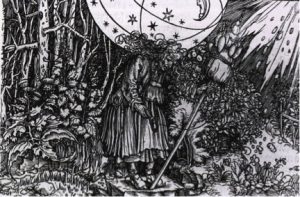
Magic became the battleground upon which the war between Christianity and Paganism was fought. However, as Christianity’s hold on Europe grew stronger then eventually dominated, the combatants on the field shifted. Around the 13th century, the fight over magic became focused on the question of whether a form of magic could be considered “natural” or “demonic” (Kieckhefer. Magic. p. 12).
It was also around this period that the (papal) inquisition arrived on the scene
The Real Disenchantment?
Over the past year or so, I’ve seen two advocates for a Christian “reenchantment.” Both, I would argue, have “radical traditionalist” tendencies, one far more overtly than the other. (“Christianity is YOUR ancestral religion.”) And both ignore or downplay the centuries of church authorities working to root out actually enchanted worldviews under the guise of excising “demons” and heretics from among the faithful.
The first papal inquisitors were appointed by Pope Gregory IX in the early thirteenth century. They were to seek out heretics – a task initially left to bishops. According to one inquisitorial guide of the era, they were to question their suspects about everything from divination and invocation of demons to singing charms over herbs and using baptismal water in magic.
And unsurprisingly, it wasn’t long before they encountered reports of sorcery. However, this was before they got slick with the accusation game. In one case, a woman managed to escape prosecution by arguing that she hadn’t committed heresy. Her reason? She hadn’t actually believed in the magic she was selling. She’d found the loophole. Eventually, Pope Alexander IV directed his inquisitors to only prosecute magic that “savored of heresy.”
As you might expect, this prompted some inquisitors to develop arguments that all magic was heretical. Yes, they were bringing back that old conversion period line that magic was all about the demons. One area where this was particularly clear were the arguments concerning necromancy forwarded by inquisitors and theologians like Nicholas Eymericus. According to Eymericus and his peers, necromancy was inherently heretical because it involved the belief that “demons” were worthy of veneration. Another thing they argued for was the existence of “practical heresy,” or in other words: a form of heresy that was also implicit in one’s actions regardless of belief.
And this was basically how a bunch of (probably sexually frustrated) theobros convinced Pope John XXII to direct the inquisition to target necromancers and magicians directly (Kieckhefer. Magic. pp. 190-191).
Lovely.
Yet again, the battleground that was magic had become a fight against “demons.” The shitty old arguments were returning; nature wasn’t healing. Inquisitors were coming for everything from the benign charms spoken over herbs for healing to the foulest necromancy, and pretty much everything in-between that could be considered evidence of deviation from dogma. In one place, inquisitors even accused a physician of having a book of “necromancy,” when really it was a book of herbal remedies (Kieckhefer. Magic. p. 192).
By the 15th century, judges and prosecutors in mainland Europe began to forward narratives of anti-Christian conspiracies featuring magicians and witches in league with demons and/or the Devil. It was also in this period that the demonic pact narrative rose to prominence as well (Kieckhefer. Magic. pp. 194-197).
But was any of this truly a disenchantment of the world?
I would argue that it was. The world before the spread and rise of Christianity was a busy one. One inhabited by all manner of peoples both living and dead. Gods, the beings we now refer to as “Otherworldly,” the unseen peoples of our Holy Middle Earth—all became “devils” or “demons” under the new order. Their very existence was/is a challenge to the notion of a world made, maintained, and wholly directed by a single god found.
We can see the rise of the papal inquisition and the witch trials as a campaign against the daemonic, spirit-filled world. A way of making such beliefs fearful to the masses, that fear enforced by spectacles of horrific public torture and execution.
(And that’s not even getting into the fact that the church actively campaigned to limit the dreams of adherents out of fear of them encountering the Dead, Deities, and Otherworldly. Because, yes, that happened!)
The Actual State Of Play
When I read the words of people like Rod Dreher, I hear in them a call to resurrect an old, bloody, and frankly evil story. True reenchantment is an expansion of our world, an act of restoration, and a recognition of our place in that wider web of relationships and life. What he advocates, however, is a return to that same old worldview that has caused so much harm and ultimately left so many feeling disconnected and an emptiness within.
(Total utopia they’re selling here, lads!)
In my opinion, the enchantment that survived did so despite the efforts of Dreher’s religious forebears. I believe we forget that at our peril, especially in our current era.
This isn’t the end of it, just one of the opening (?) volleys we just happened to catch. Dreher likely isn’t the only one working this angle, and nor will it be the only strategy he and his fellow-travelers try to employ. We need to guard against well-used tactics such as content produced to manufacture an illusion of consensus or create a foundation to co-opt elements of our practices with allegedly Christian symbolism. We need to also consider the possibility of entryist tactics within our communities.
Last but not least, Dreher is a friend of JD Vance, our Vice-President elect. We face an incoming administration that has been shaped by Christian nationalist ambitions. Needless to say, we need to tread carefully. Dreher is not alone in believing he’s fighting a spiritual war. Posts and comments about spiritual warfare and the battle of good over evil have become worryingly common online over the past few months, and especially before the election. For some, the past election was the great showdown between Christianity and evil, with Michael the Archangel one of the main recipients of their prayers.

The rules we’ve been playing by for the past few decades are likely to go the way of the dodo.
We need to recognize the fight we’re in and be smart about it. Frankly, I don’t even think we have the luxury of believing in common ground anymore. We in the US are, at least theoretically, a nation of laws. We’re supposed to have the freedom of religion, to believe whatever the fuck we want. That is where we must direct our fight. And failing that?
Well, that’s the question, isn’t it?


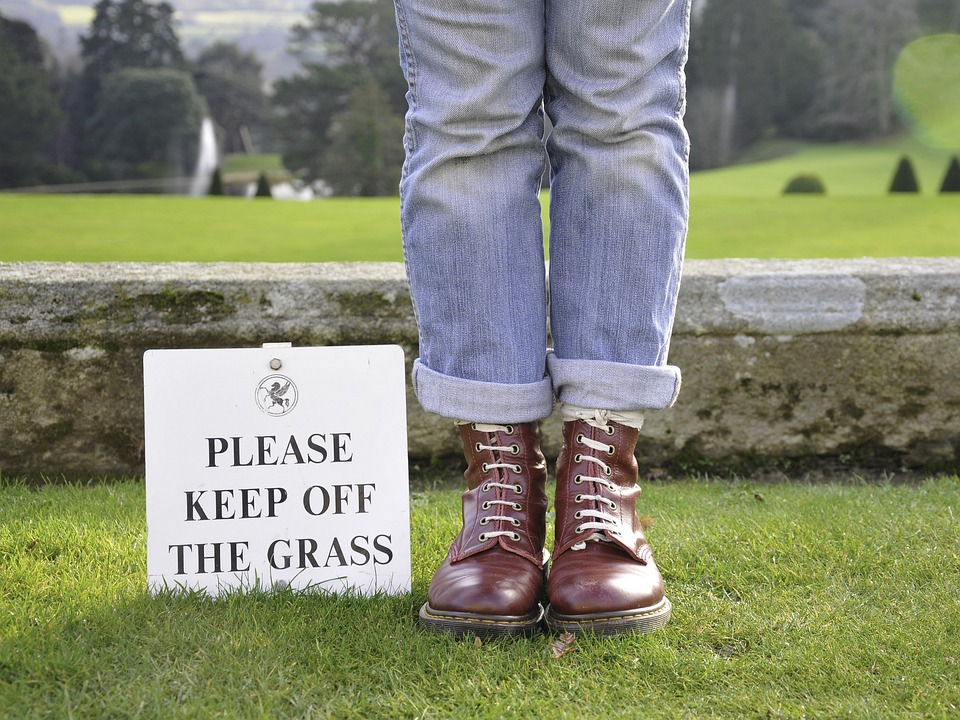





 dream journal that lives in an app on my phone with a secondary residence in the cloud. Other people have dedicated paper and pen journals that they keep in a handy-to-reach place for when they wake up.
dream journal that lives in an app on my phone with a secondary residence in the cloud. Other people have dedicated paper and pen journals that they keep in a handy-to-reach place for when they wake up. This is a space I find myself in quite often. I’m never alone there but in classes full of what I suspect may be other sleeping witches. The environment is extremely strict – it would make a Victorian school room look lax. And there’s an underlying sense of danger should you mess up. But as with all schools, there are lessons here too (and not only in etiquette). I’ve received some of my most interesting magical lessons from this school, and yes, they often assign homework too.
This is a space I find myself in quite often. I’m never alone there but in classes full of what I suspect may be other sleeping witches. The environment is extremely strict – it would make a Victorian school room look lax. And there’s an underlying sense of danger should you mess up. But as with all schools, there are lessons here too (and not only in etiquette). I’ve received some of my most interesting magical lessons from this school, and yes, they often assign homework too.
 Ever since I went to Iceland in 2018, I feel like a part of myself sort of dug in there like some kind of anchor for when I die. There was a sense of home to Iceland, and so it’s probably not surprising that I end up there quite often in my dreams. Out of all the recurring places, Iceland, and especially northern Iceland, probably features the most. And these dreams almost always come with a message or involve elves in some way.
Ever since I went to Iceland in 2018, I feel like a part of myself sort of dug in there like some kind of anchor for when I die. There was a sense of home to Iceland, and so it’s probably not surprising that I end up there quite often in my dreams. Out of all the recurring places, Iceland, and especially northern Iceland, probably features the most. And these dreams almost always come with a message or involve elves in some way. When we think about the Otherworld, I think there’s a tendency to imagine it as some old-fashioned, almost Renn-Faire-looking kind of deal. And don’t get me wrong – in my experience, those places do exist. But I’ve also found that there are a lot of modern-looking places associated with the Otherworld as well.
When we think about the Otherworld, I think there’s a tendency to imagine it as some old-fashioned, almost Renn-Faire-looking kind of deal. And don’t get me wrong – in my experience, those places do exist. But I’ve also found that there are a lot of modern-looking places associated with the Otherworld as well.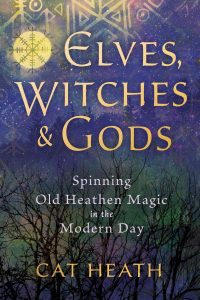 Witches and Gods: Spinning Old Heathen Magic in Modern Day. If a somewhat atypical look at Heathen worldview and magic with an emphasis on experimentation and practice interests you, then it may be right up your alley.
Witches and Gods: Spinning Old Heathen Magic in Modern Day. If a somewhat atypical look at Heathen worldview and magic with an emphasis on experimentation and practice interests you, then it may be right up your alley. 

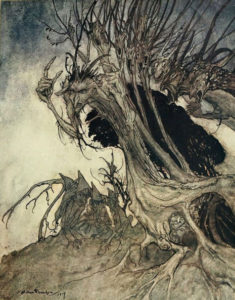 inspiring and capable of producing that curious combination of “dread, veneration, and wonder”. (If your mind found that incongruous in any way, then you have some unpacking to do.)
inspiring and capable of producing that curious combination of “dread, veneration, and wonder”. (If your mind found that incongruous in any way, then you have some unpacking to do.)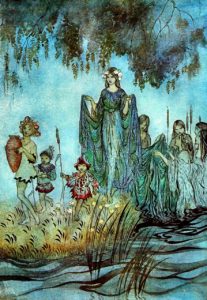
 Other beings have produced awe to a lesser degree in me. Instead of outright terror, there’s an edge of caution. Over the years, I’ve noticed that these tend to be the beings who seem less capable of harming me, or at least can only harm me to a lesser degree. And so I’ve learned to listen to those feelings. When not obscured by bullshit ideas garnered from Victorian nonsense and scientific materialism, those feelings can be a useful guide to who you are dealing with and how careful you should be.
Other beings have produced awe to a lesser degree in me. Instead of outright terror, there’s an edge of caution. Over the years, I’ve noticed that these tend to be the beings who seem less capable of harming me, or at least can only harm me to a lesser degree. And so I’ve learned to listen to those feelings. When not obscured by bullshit ideas garnered from Victorian nonsense and scientific materialism, those feelings can be a useful guide to who you are dealing with and how careful you should be.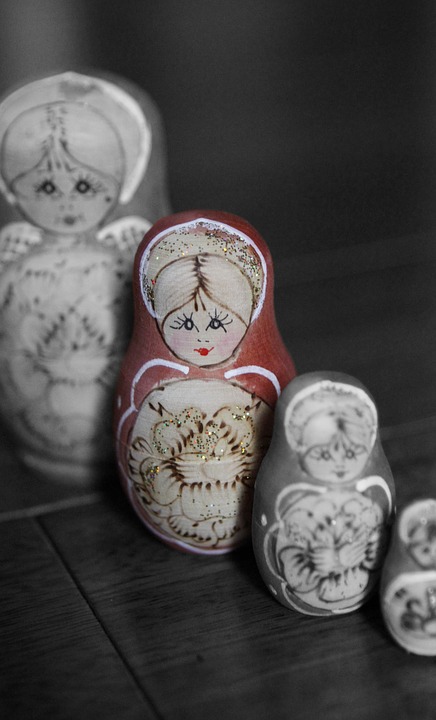
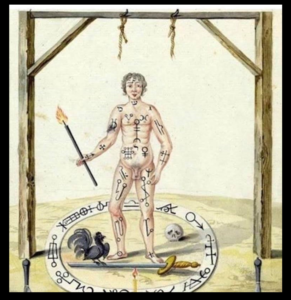 and discussion. So if you’ve got an hour or so (it’s probably going to be between 1-2 hours) on 9/15 at around 3pm, join me for a crazed exploration of the history, purpose, and ways in which magic circles can be tweaked. Can’t make it? The class will be recorded so participants can listen later!
and discussion. So if you’ve got an hour or so (it’s probably going to be between 1-2 hours) on 9/15 at around 3pm, join me for a crazed exploration of the history, purpose, and ways in which magic circles can be tweaked. Can’t make it? The class will be recorded so participants can listen later!

 Legitimate lineages (however they’re judged) can be excellent for a number of reasons though. Because not only do you have access to a far more systematic way of learning, but you also have the safety nets of more experienced elders as well as the lineage itself. If you are interested in a tradition that has lineages then you should absolutely do the work and enter in the correct way. In some cases, it can actually be dangerous to you if you don’t.
Legitimate lineages (however they’re judged) can be excellent for a number of reasons though. Because not only do you have access to a far more systematic way of learning, but you also have the safety nets of more experienced elders as well as the lineage itself. If you are interested in a tradition that has lineages then you should absolutely do the work and enter in the correct way. In some cases, it can actually be dangerous to you if you don’t.
 England, and I was the weird kid everyone else came to ask about getting the “power of Manon” when the movie The Craft came out.
England, and I was the weird kid everyone else came to ask about getting the “power of Manon” when the movie The Craft came out.


 through the bottom of my boots. Then (usually at the top of a hill), I would fall to the ground to thank the hills when the knots around my heart lifted.
through the bottom of my boots. Then (usually at the top of a hill), I would fall to the ground to thank the hills when the knots around my heart lifted.
 beings that inhabit them. And a place and its inhabitants may be one way on one day, and completely different on another day. Even if you’ve been somewhere before, never assume that a place is going to be or feel the same when you go back there. Keep on top of your basic witchy skills, and
beings that inhabit them. And a place and its inhabitants may be one way on one day, and completely different on another day. Even if you’ve been somewhere before, never assume that a place is going to be or feel the same when you go back there. Keep on top of your basic witchy skills, and vending machines for favors (in exchange for some pretty subpar offerings)?
vending machines for favors (in exchange for some pretty subpar offerings)?
 over but cohabiting with. Where are you in your “neighborhood”? Who do you need to avoid pissing off and who do you need to give a little more care and attention to?
over but cohabiting with. Where are you in your “neighborhood”? Who do you need to avoid pissing off and who do you need to give a little more care and attention to?


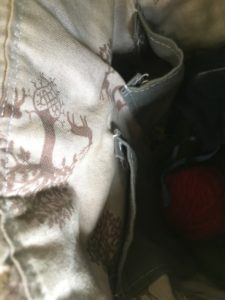
 middle of them, and although I haven’t really found good scholarship on them, my experience has been that these are both effective tools and apotropaics. They’re protective against the Unseen, and allow you – again, in my experience – to see through glamours and things that are normally unseen if you look through them.
middle of them, and although I haven’t really found good scholarship on them, my experience has been that these are both effective tools and apotropaics. They’re protective against the Unseen, and allow you – again, in my experience – to see through glamours and things that are normally unseen if you look through them. general because it has so many uses. You can use it to salt boundaries, protect, and banish. But black salt is just taking regular old salt and leveling it the fuck up! The addition of iron, ash, and (in my case) ground wolf bone, makes black salt an excellent addition to a go-bag. It’s like an apotropaic powerhouse!
general because it has so many uses. You can use it to salt boundaries, protect, and banish. But black salt is just taking regular old salt and leveling it the fuck up! The addition of iron, ash, and (in my case) ground wolf bone, makes black salt an excellent addition to a go-bag. It’s like an apotropaic powerhouse! energy that might “grow up” to get its own ideas and start its own trouble. Spun fiber can provide a bridge, delineate space, and serve as an offering in its own right. I have two spindles that I typically use in ritual work: one is a collapsible spindle that fits in my bag; and the other,
energy that might “grow up” to get its own ideas and start its own trouble. Spun fiber can provide a bridge, delineate space, and serve as an offering in its own right. I have two spindles that I typically use in ritual work: one is a collapsible spindle that fits in my bag; and the other,  my large one, was a gift to thank me for help given. I adore my large one because it feels weighty and authoritative – like a wand. It’s something I’ve wielded in ritual before now when opening portals and working my will. The collapsible one lives in my purse (yes, it’s that small) along with the sheep knuckle I use for yes/no divination.
my large one, was a gift to thank me for help given. I adore my large one because it feels weighty and authoritative – like a wand. It’s something I’ve wielded in ritual before now when opening portals and working my will. The collapsible one lives in my purse (yes, it’s that small) along with the sheep knuckle I use for yes/no divination. resonance to this item that just works. I’ve engraved it with words of power (which I won’t show here), and it’s one of my favorite spirit weapons for subduing, setting up some hardcore protective space, or for when things go bad. I don’t know whether it’s wholly iron or steel (which is mostly iron anyway), but it’s kickass anyway.
resonance to this item that just works. I’ve engraved it with words of power (which I won’t show here), and it’s one of my favorite spirit weapons for subduing, setting up some hardcore protective space, or for when things go bad. I don’t know whether it’s wholly iron or steel (which is mostly iron anyway), but it’s kickass anyway. This is one of my more McGyver-type items. Red thread can be used to bind and protect, or create new items (like a crossroads effigy or protective rowan cross). It can also be used for knot spells, marking off space, and much more. The yarn I use is hand spun with intent and then ritually consecrated.
This is one of my more McGyver-type items. Red thread can be used to bind and protect, or create new items (like a crossroads effigy or protective rowan cross). It can also be used for knot spells, marking off space, and much more. The yarn I use is hand spun with intent and then ritually consecrated. rundown of what meditation actually is.
rundown of what meditation actually is.
 unseen interacting with you in some of these places, and that’s fantastic. That’s what you want as a witch! Relationships with the Unseen have always been part and parcel of witchery. Just remember to be polite and to never offer anything of yourself or that you are not prepared to truly give.
unseen interacting with you in some of these places, and that’s fantastic. That’s what you want as a witch! Relationships with the Unseen have always been part and parcel of witchery. Just remember to be polite and to never offer anything of yourself or that you are not prepared to truly give.



 ourselves being mobbed by mosquitoes.
ourselves being mobbed by mosquitoes.




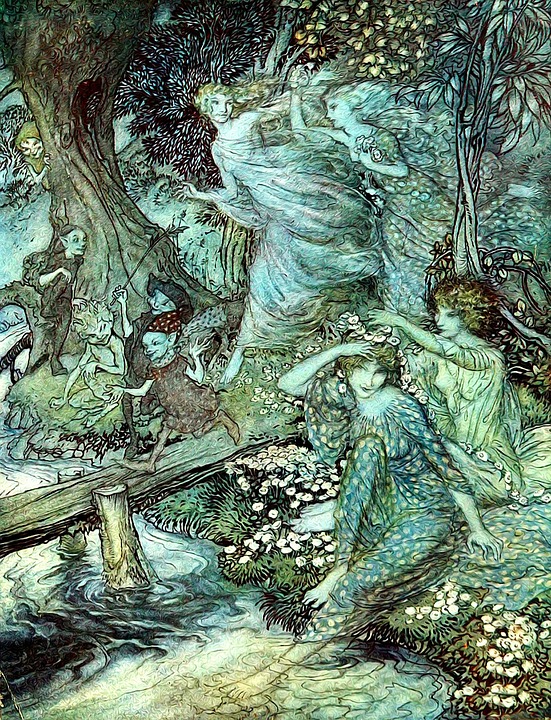
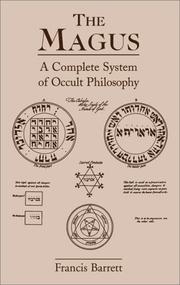 dwelled upon it. Of course, this onion also affects the kinds of Unseen that might be there: the types of Unseen, their attitudes towards humans, how they expect interactions to look, the pacts that were made between humans and Unseen in years past, and the kinds of offerings they like. Sometimes these layers are things that you might expect. After all, who doesn’t expect Native American layers, and other layers made up of mostly Christianity in America? But even in America, there are also often layers that are far less expected – like the layer of occultism derived from
dwelled upon it. Of course, this onion also affects the kinds of Unseen that might be there: the types of Unseen, their attitudes towards humans, how they expect interactions to look, the pacts that were made between humans and Unseen in years past, and the kinds of offerings they like. Sometimes these layers are things that you might expect. After all, who doesn’t expect Native American layers, and other layers made up of mostly Christianity in America? But even in America, there are also often layers that are far less expected – like the layer of occultism derived from 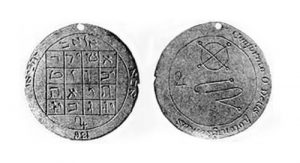
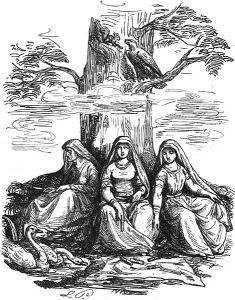 In other words, if space is a container for action, actions set down layers (which call other similar actions to themselves), and there is a force that ensures that those contexts are revisited, then it would stand to reason that spaces have ‘patterns’ or contexts that get revisited again and again. Not only that, but these patterns don’t just affect humans; as the first Bauschatz quote says, these spaces-as-containers-for-action also seem to apply other beings too. Or at least that’s the best guess of what Germanic Heathens thought about the matter during the Heathen period.
In other words, if space is a container for action, actions set down layers (which call other similar actions to themselves), and there is a force that ensures that those contexts are revisited, then it would stand to reason that spaces have ‘patterns’ or contexts that get revisited again and again. Not only that, but these patterns don’t just affect humans; as the first Bauschatz quote says, these spaces-as-containers-for-action also seem to apply other beings too. Or at least that’s the best guess of what Germanic Heathens thought about the matter during the Heathen period.